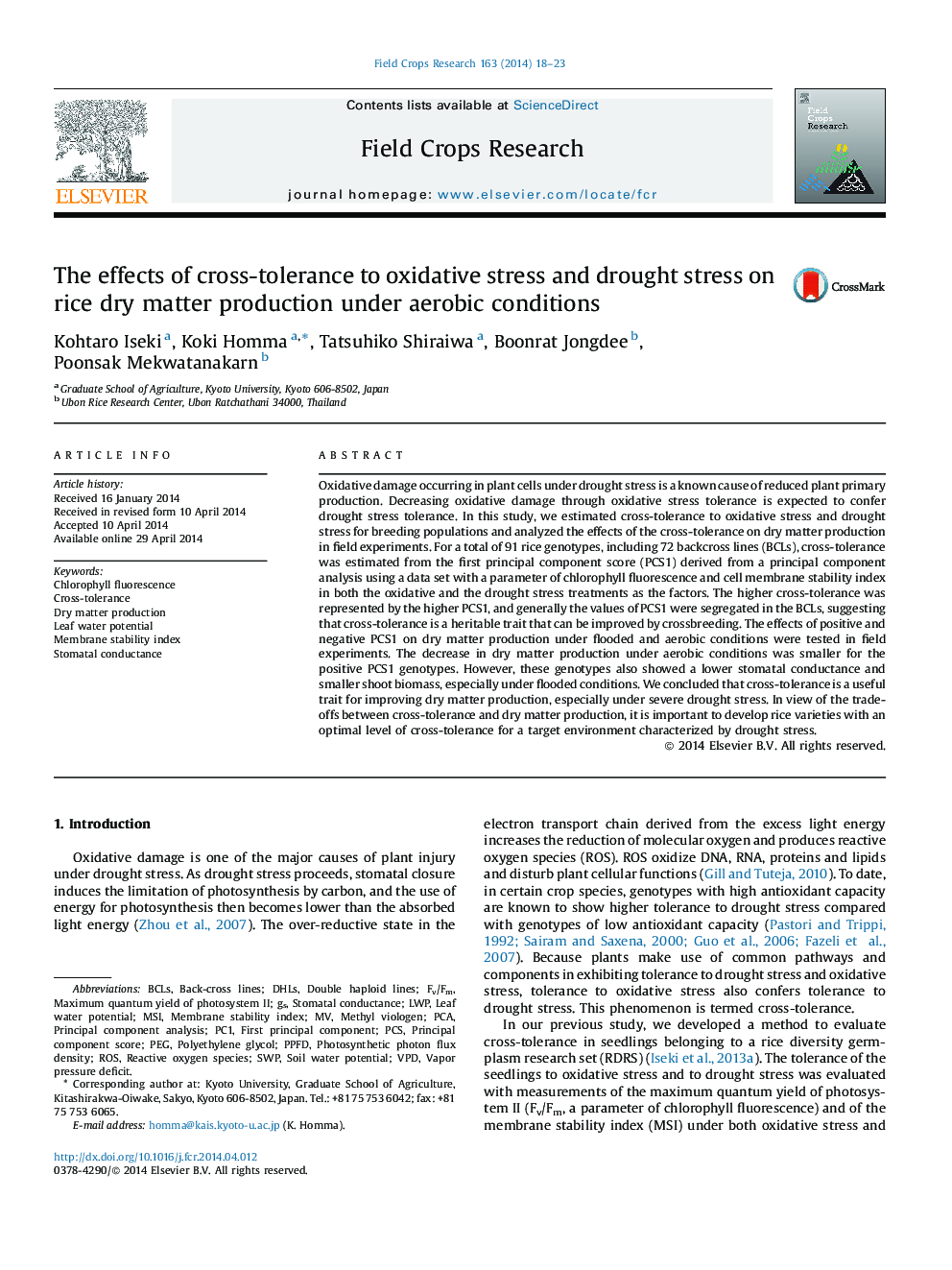| کد مقاله | کد نشریه | سال انتشار | مقاله انگلیسی | نسخه تمام متن |
|---|---|---|---|---|
| 4510107 | 1624700 | 2014 | 6 صفحه PDF | دانلود رایگان |
• A wide segregation of cross-tolerance were observed in the backcross lines.
• This means cross-tolerance is a heritable trait that can be improved by crossbreeding.
• The smaller biomass reduction under drought was observed in the cross-tolerant genotypes.
• However, they also showed lower shoot biomass under favorable conditions.
• We concluded that the cross-tolerance trades drought tolerance with biomass production.
Oxidative damage occurring in plant cells under drought stress is a known cause of reduced plant primary production. Decreasing oxidative damage through oxidative stress tolerance is expected to confer drought stress tolerance. In this study, we estimated cross-tolerance to oxidative stress and drought stress for breeding populations and analyzed the effects of the cross-tolerance on dry matter production in field experiments. For a total of 91 rice genotypes, including 72 backcross lines (BCLs), cross-tolerance was estimated from the first principal component score (PCS1) derived from a principal component analysis using a data set with a parameter of chlorophyll fluorescence and cell membrane stability index in both the oxidative and the drought stress treatments as the factors. The higher cross-tolerance was represented by the higher PCS1, and generally the values of PCS1 were segregated in the BCLs, suggesting that cross-tolerance is a heritable trait that can be improved by crossbreeding. The effects of positive and negative PCS1 on dry matter production under flooded and aerobic conditions were tested in field experiments. The decrease in dry matter production under aerobic conditions was smaller for the positive PCS1 genotypes. However, these genotypes also showed a lower stomatal conductance and smaller shoot biomass, especially under flooded conditions. We concluded that cross-tolerance is a useful trait for improving dry matter production, especially under severe drought stress. In view of the trade-offs between cross-tolerance and dry matter production, it is important to develop rice varieties with an optimal level of cross-tolerance for a target environment characterized by drought stress.
Journal: Field Crops Research - Volume 163, July 2014, Pages 18–23
